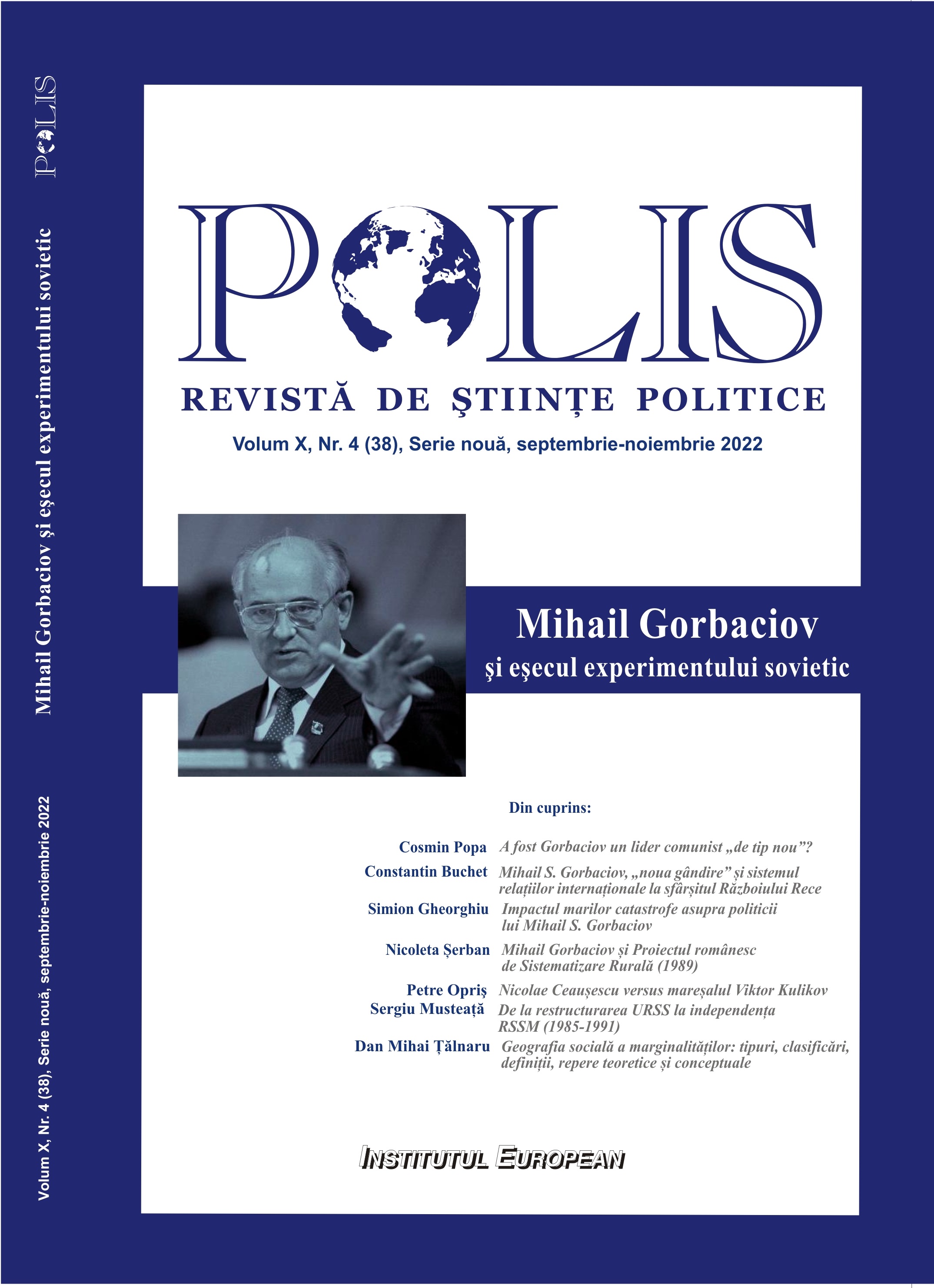Impactul marilor catastrofe asupra politicii lui Mihail S. Gorbaciov
The impact of major catastrophes on the politics of Mikhail S. Gorbachev
Author(s): Simion GheorghiuSubject(s): Politics / Political Sciences, Political Sciences, Governance, Political history, Environmental and Energy policy, Government/Political systems, History of Communism, Post-Communist Transformation
Published by: Editura Institutul European
Keywords: USSR; Mikhail Gorbachev; Nikolay Ryzhkov; Chernobyl nuclear catastrophe; Armenia earthquake;
Summary/Abstract: In the history of the Soviet Union, there were many natural and man-made catastrophes, which authorities obviously preferred not to talk about. In an attempt to create the illusion of the perfect society, both for Soviet citizens and outsiders, the leadership hid the disasters and thei effects, and when it failed, it tried to drastically censor the information. These were presented in the central press extremely lapidally, and in the local press they were completely absent. Things began to change in the second half of the 1980s, after Mikhail S. Gorbachev came to power. The Kremlin leadership preferred not to hide the catastrophes anymore, censorship was weakened after 1988, and in August 1999 it was removed altogether. In this article we will follow the impact of two catastrophes on the Gorbachev political conception. It is about the man-made disaster an Chernobyl in April 1986, after which Gorbachev came to the conclusion that the policy of transparency (glasnost) must be started in force, and the great earthquake in Armenia in December 1988, which influenced the beliefs and actions of the general secretary of CC of the CPSU in the sense of a wider opening in the external plan
Journal: Polis. Journal of Political Science
- Issue Year: X/2022
- Issue No: 4 (38)
- Page Range: 23-32
- Page Count: 8
- Language: Romanian

